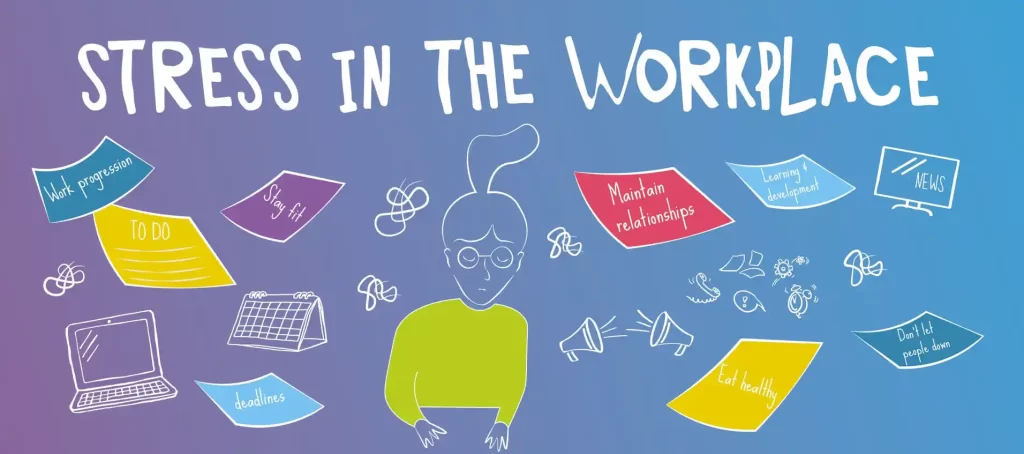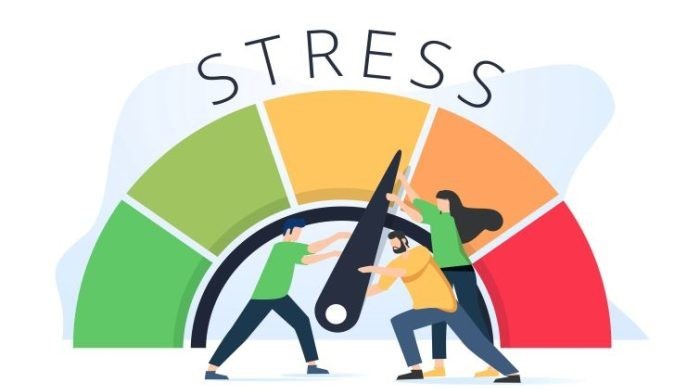Strategies for Stress Awareness Month

April is Stress Awareness Month, a time to shine a spotlight on the pervasive impact of stress on our mental health and well-being, particularly in the workplace. In today’s fast-paced and demanding work environments, stress has become a common companion for many individuals, often leading to burnout, anxiety and other mental health challenges. Let´s explore the sources of workplace stress, its effects on mental health and practical strategies for managing stress in the workplace.

Understanding workplace stress:
Workplace stress can stem from various sources, including:
- High workloads and tight deadlines
- Unclear expectations or role ambiguity
- Lack of control or autonomy in decision-making
- Conflict with coworkers or managers
- Job insecurity or fear of layoffs
- Poor work-life balance or long hours
These stressors can take a toll on mental health, contributing to feelings of overwhelm, anxiety and exhaustion.
Effects of workplace stress on mental health
Chronic workplace stress can have significant consequences for mental health and well-being, including:
- Increased risk of anxiety and depression: Prolonged exposure to stress can disrupt mood regulation and contribute to the development or exacerbation of mental health conditions.
- Impaired cognitive function: Stress can impair concentration, memory and decision-making abilities, making it difficult to perform effectively in the workplace.
- Physical health problems: Chronic stress has been linked to an increased risk of cardiovascular disease, gastrointestinal issues and other physical health problems.
- Reduced job satisfaction and engagement: High levels of stress can diminish job satisfaction, leading to decreased motivation, productivity and engagement at work.

Strategies for managing workplace stress
Set boundaries: Establish clear boundaries between work and personal life to prevent burnout. Avoid checking emails or taking work calls outside of designated work hours.
Practise time management: Prioritise tasks, break projects into manageable chunks and allocate time for breaks throughout the day to prevent feeling overwhelmed.
Seek support: Reach out to coworkers, supervisors or mental health professionals for support and guidance when needed. Do not hesitate to ask for help or delegate tasks if you are feeling overwhelmed.
Practise self-care: Incorporate self-care practices into your daily routine, such as exercise, meditation or hobbies, to reduce stress and promote overall well-being.
Communicate effectively: Express concerns or challenges to your supervisor or HR department in a constructive and solution-oriented manner. Effective communication can help address workplace stressors and promote a healthier work environment.
Creating a healthy work environment: Employers also play a crucial role in mitigating workplace stress by:
- Fostering a supportive and inclusive workplace culture
- Providing resources and support for stress management and mental health
- Offering flexibility and autonomy in work arrangements
- Promoting work-life balance and prioritising employee well-being

Stress Awareness Month serves as a reminder of the importance of addressing workplace stress and its impact on mental health. By understanding the sources of workplace stress, its effects on mental well-being, and practical strategies for managing stress in the workplace, individuals and organisations can work together to create healthier and more supportive work environments. Remember, prioritising self-care and seeking support when needed are essential steps towards managing workplace stress and promoting overall mental health and well-being.
